Sustainable Backyard: Eco-Friendly Ideas for Green Living and Gardening
In today's rapidly changing world, more and more people are embracing eco-friendly lifestyles and incorporating sustainable practices into their daily lives. And what better place to start than in our own backyards?
With a growing emphasis on sustainable living and the desire to create a greener future, it's time to explore some eco-friendly backyard ideas that not only promote a healthier environment but also create a beautiful and inviting space for relaxation and enjoyment. From organic gardening techniques to water conservation strategies, there are countless ways to transform your outdoor oasis into a sustainable haven that benefits both you and the planet.
So, join us as we delve into the world of eco-friendly backyard ideas and discover how you can make a positive difference right in your own backyard.
Composting: Waste Reduction & Garden Enrichment
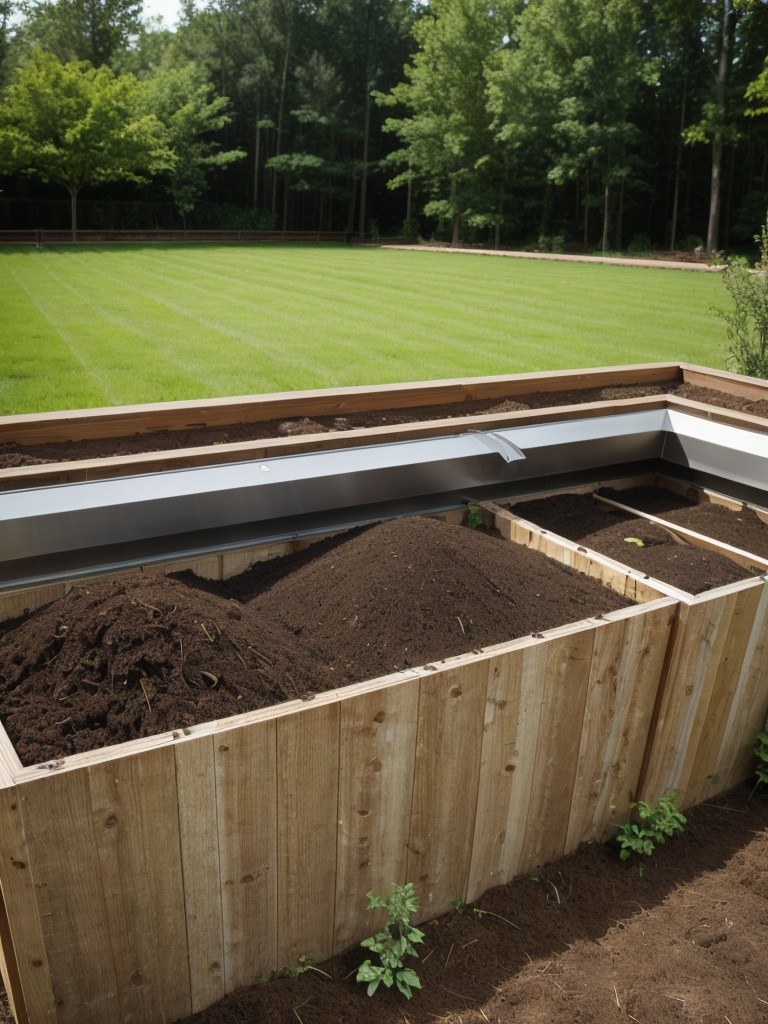
Composting is a highly effective and sustainable method of waste management that offers numerous benefits for both the environment and your garden. By incorporating a composting system into your routine, you can significantly reduce the amount of waste that ends up in landfills, thereby minimizing harmful greenhouse gas emissions. Composting also provides a natural solution for enriching your garden soil with essential nutrients, improving its moisture retention capacity, and promoting healthy plant growth.
This process involves the decomposition of organic materials such as kitchen scraps, yard trimmings, and leaves, through the action of bacteria, fungi, and other microorganisms. With the right balance of green and brown materials, proper aeration and moisture, and a little patience, your compost pile will transform into a nutrient-rich humus that can be used as a valuable fertilizer and soil conditioner. Incorporating a composting system into your gardening practices is not only eco-friendly but also a rewarding way to achieve sustainable waste management and improve the overall health of your garden.
Save water with rainwater harvesting for thriving plants
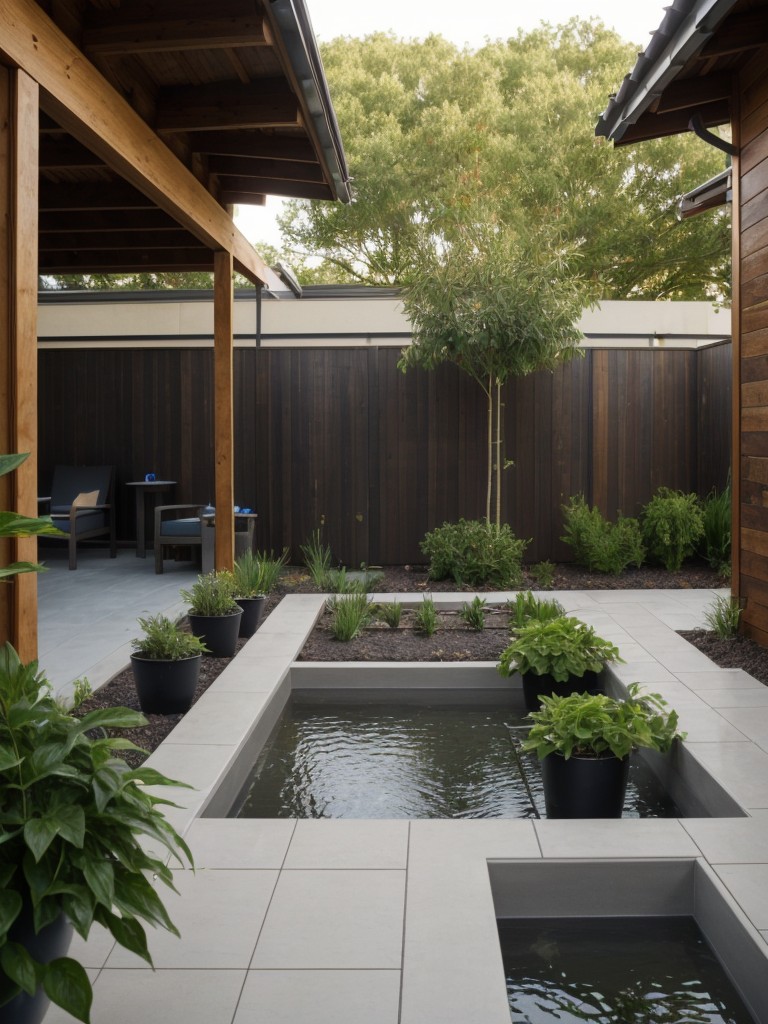
One effective method to optimize water usage and decrease dependency on traditional water sources is the installation of a rainwater harvesting system. By implementing this sustainable solution, homeowners and businesses can harness the power of rainfall and utilize it for watering plants and other non-potable uses.
Rainwater harvesting systems typically consist of gutters and downspouts to collect rainfall from rooftops, followed by a filtration system that removes debris and contaminants. The collected water is then stored in tanks or cisterns to be accessed when needed.
This eco-friendly approach not only conserves water but also minimizes the strain on local water supplies. Additionally, rainwater is naturally soft and devoid of harmful chemicals, making it ideal for nurturing and nourishing plants.
The installation of a rainwater harvesting system provides an efficient and sustainable way to reduce water consumption while promoting environmental stewardship.
Bee Haven: Building a Buzzworthy Garden
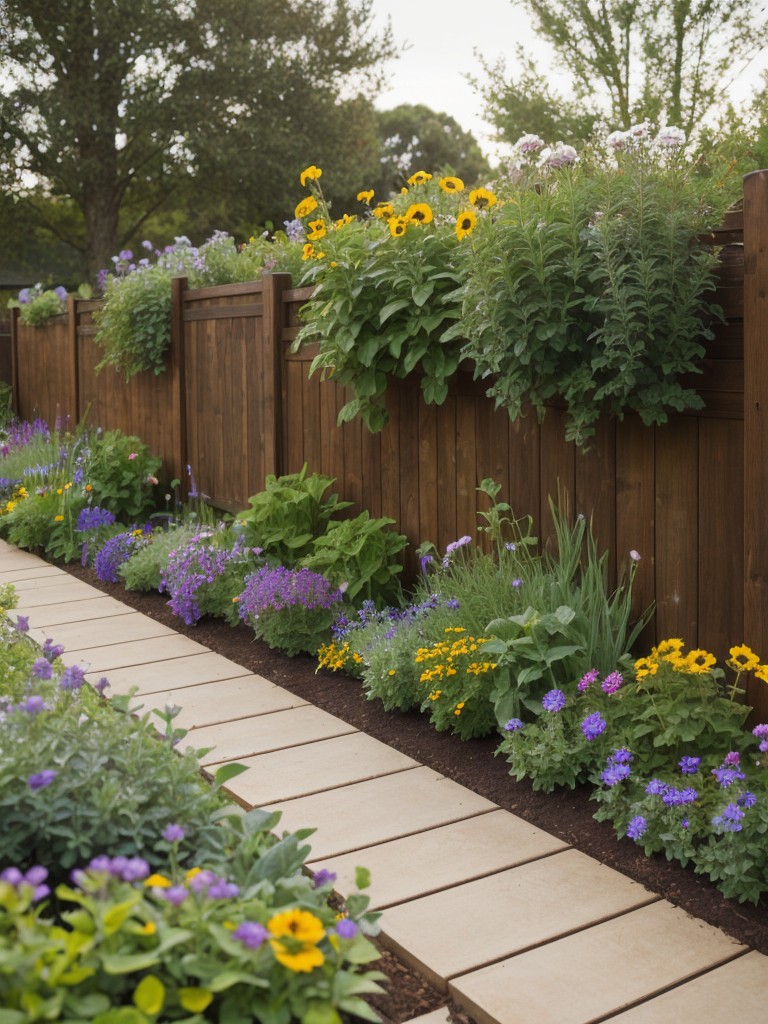
Creating a bee-friendly garden is a wonderful way to contribute to the health and well-being of these essential pollinators. To establish such a garden, it is crucial to prioritize the planting of native flowers, as they provide a rich source of nectar and pollen that bees require for their survival.
Native flowers are also better suited to local weather conditions, require less maintenance, and are more resilient to pests and diseases. Additionally, it is important to offer nesting sites for bees, such as small wood piles or solitary bee houses, as they provide a safe and sheltered space for bees to lay their eggs.
By implementing these strategies, you can create an environment that not only attracts bees but also supports their population.
Greening up: DIY vertical garden with recycled materials for maximum growth
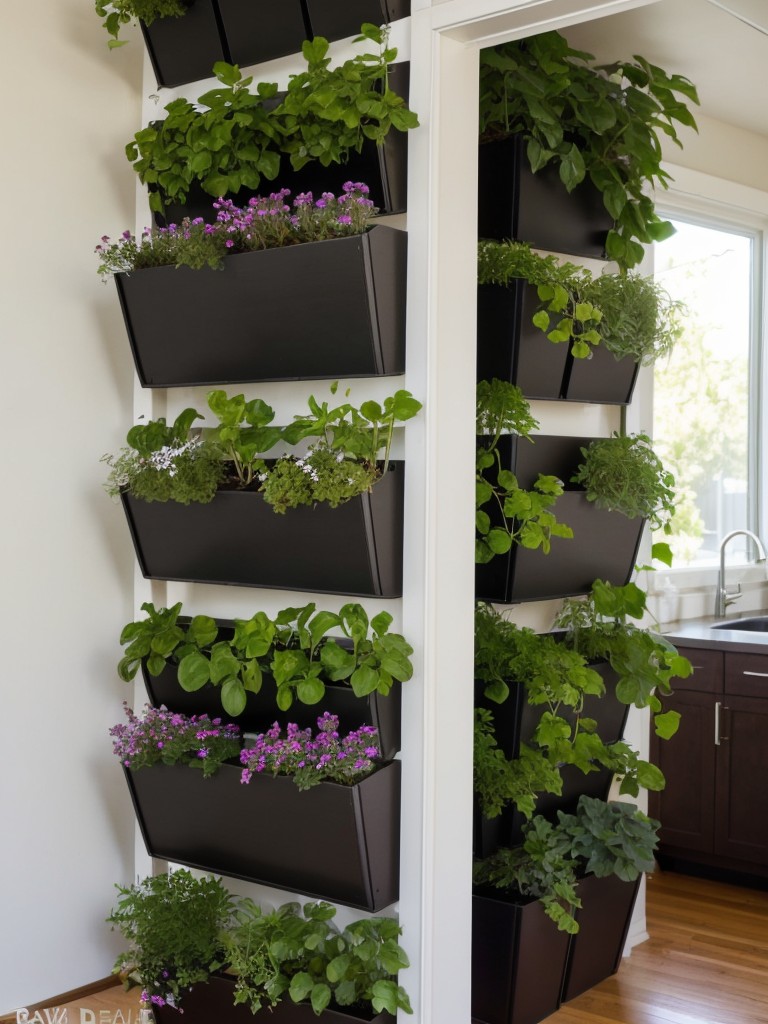
Creating a DIY vertical garden utilizing recycled materials is an innovative and eco-friendly approach to maximizing space and cultivating an abundant array of plants. This ingenious method combines sustainability and horticulture, allowing individuals to embark on a fulfilling gardening journey.
By repurposing materials, such as old pallets, plastic bottles, or even salvaged wood, one can fashion a visually captivating and functional garden structure. This vertical garden design ingeniously utilizes vertical space, thereby presenting an ideal solution for those with limited garden areas.
With careful planning, placement, and proper maintenance, this DIY vertical garden can become a vibrant and thriving oasis, creating an aesthetic appeal while promoting sustainability.
Light up the night with solar-powered ambiance
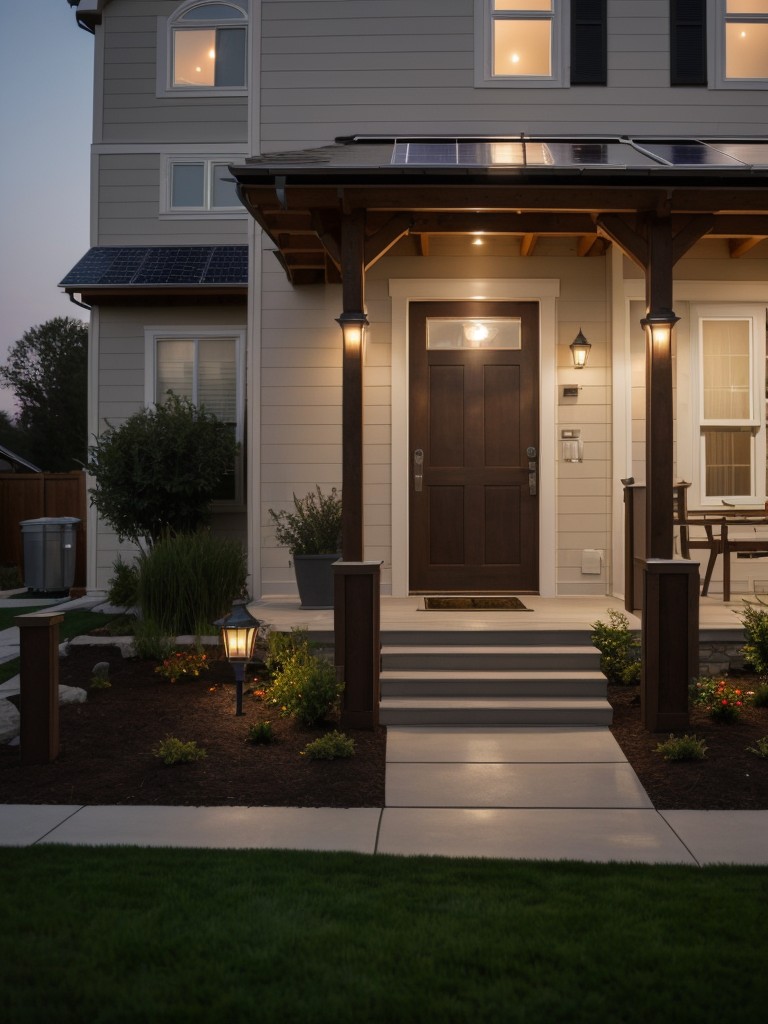
Solar-powered outdoor lights are a highly efficient and environmentally friendly option for illuminating your outdoor spaces. By harnessing the power of the sun, these lights minimize energy usage and reduce your carbon footprint.
With their sleek and modern designs, they not only provide functional lighting but also add a touch of elegance and sophistication to your outdoor decor. Whether you want to create a warm and inviting atmosphere for your backyard, patio, or garden, solar-powered outdoor lights are the perfect solution.
Easy to install and low maintenance, these lights are a cost-effective and sustainable choice for homeowners who are conscious of their energy consumption. Enjoy the beauty of well-lit outdoor spaces while prioritizing sustainability with solar-powered outdoor lights.
Nurture Nature: Embrace Organic Pest Control!
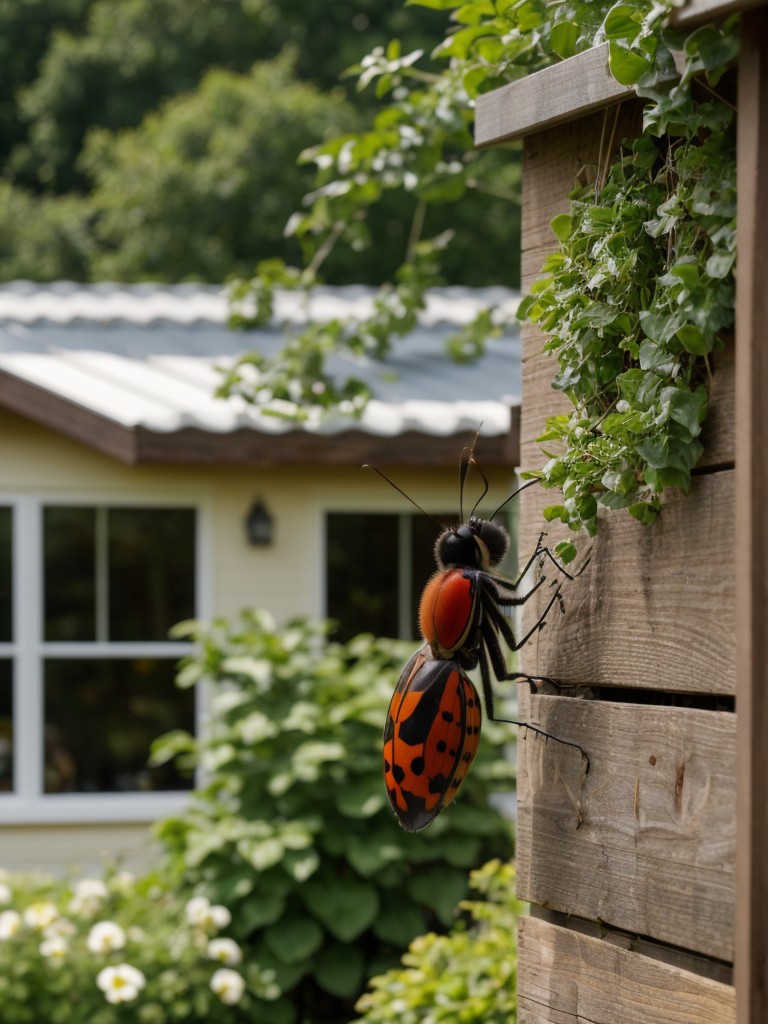
In the pursuit of creating a safe and sustainable environment, it is imperative to prioritize natural pest control methods. By embracing practices such as companion planting and encouraging the presence of beneficial insects, we can effectively manage pests without resorting to harmful chemicals. Companion planting involves strategically selecting plant combinations that deter pests, enhance pollination, and improve overall plant health.
This method utilizes the natural attributes of certain plants to create a balanced ecosystem that naturally limits the population of unwanted pests. Furthermore, by encouraging the presence of beneficial insects such as ladybugs and lacewings, we can establish a natural pest control system that supports biodiversity and contributes to the overall health of our ecosystem. By embracing these holistic approaches, we can achieve an environmentally-friendly solution for pest management.
Bottle, Can, and Tire Art: Transform Trash into Stunning Garden Decor!
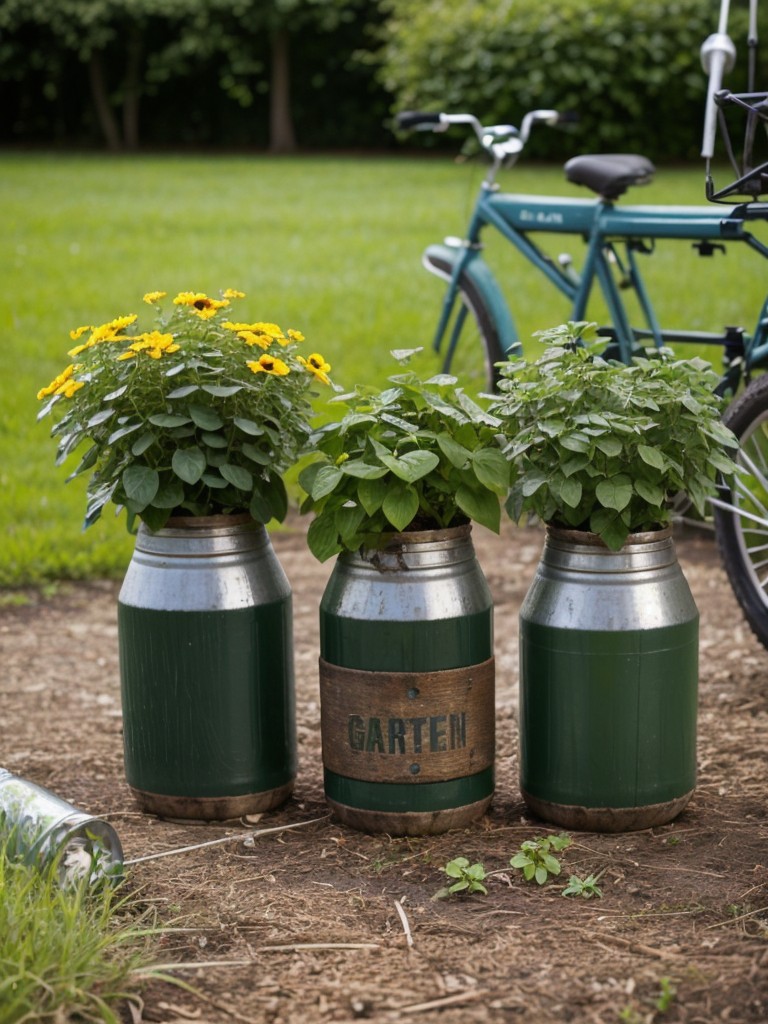
Introducing a fantastic DIY recycled garden art project that embraces sustainability and creativity! Utilizing discarded bottles, cans, or even bicycle tires, this project is the perfect opportunity to transform trash into stunning garden decor.
By repurposing materials that would have otherwise ended up in landfills, we can contribute to a greener planet while unleashing our artistic potential. Imagine the visual appeal of vibrant flowers blooming from an array of repurposed bottles or cans, or the whimsical charm of a bicycle tire turned into a unique hanging planter.
This project not only adds an aesthetic touch to your garden but also serves as a delightful reminder of the power of recycling and upcycling. Let your imagination soar and watch as your garden transforms into a delightful oasis of eco-friendly artistry.
Go Green: Upgrade Your Shed with a Cool Roof!
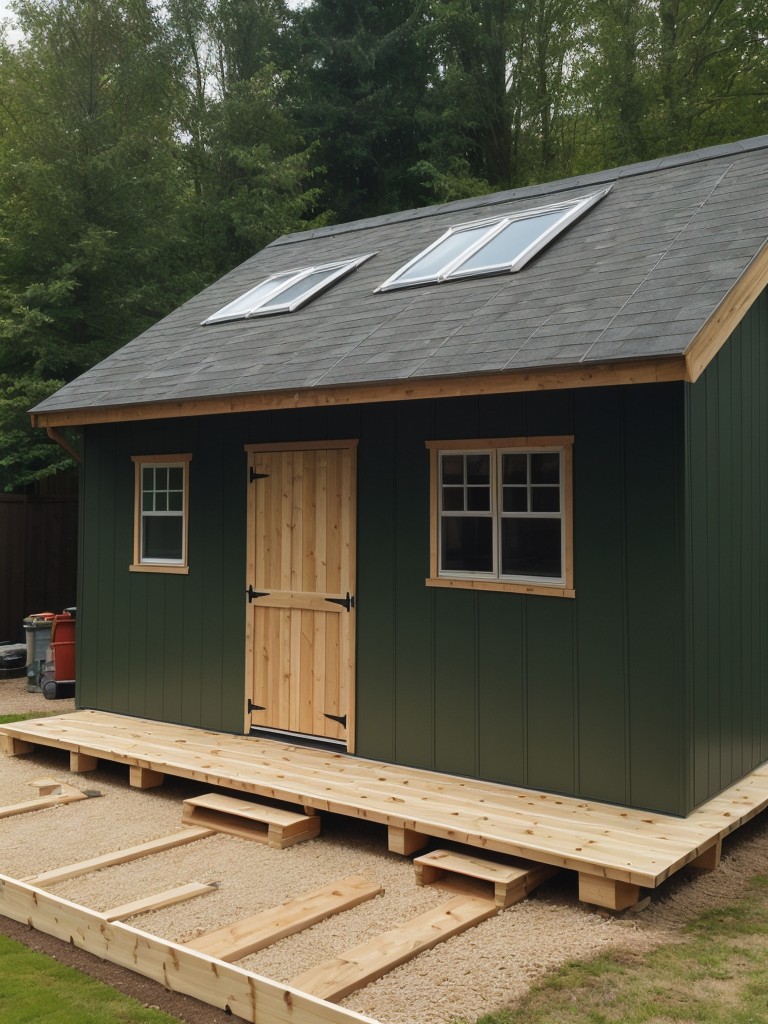
Installing a green roof on your shed or outdoor structure can provide numerous benefits that go beyond its aesthetic appeal. This innovative and eco-friendly solution not only enhances the insulation of the building but also helps to mitigate the heat island effect.
By incorporating vegetation on the roof, the green roof acts as a natural insulator, reducing heat loss in the winter and heat gain during the summer months. Additionally, the plants and soil capture and retain rainwater, significantly reducing stormwater runoff and thus helping to improve the overall water management system.
With its ability to improve energy efficiency and minimize environmental impact, the installation of a green roof is a smart and sustainable choice for any outdoor structure.
Green Thumb: Cultivate Your Victory Garden, Slash Food Miles!
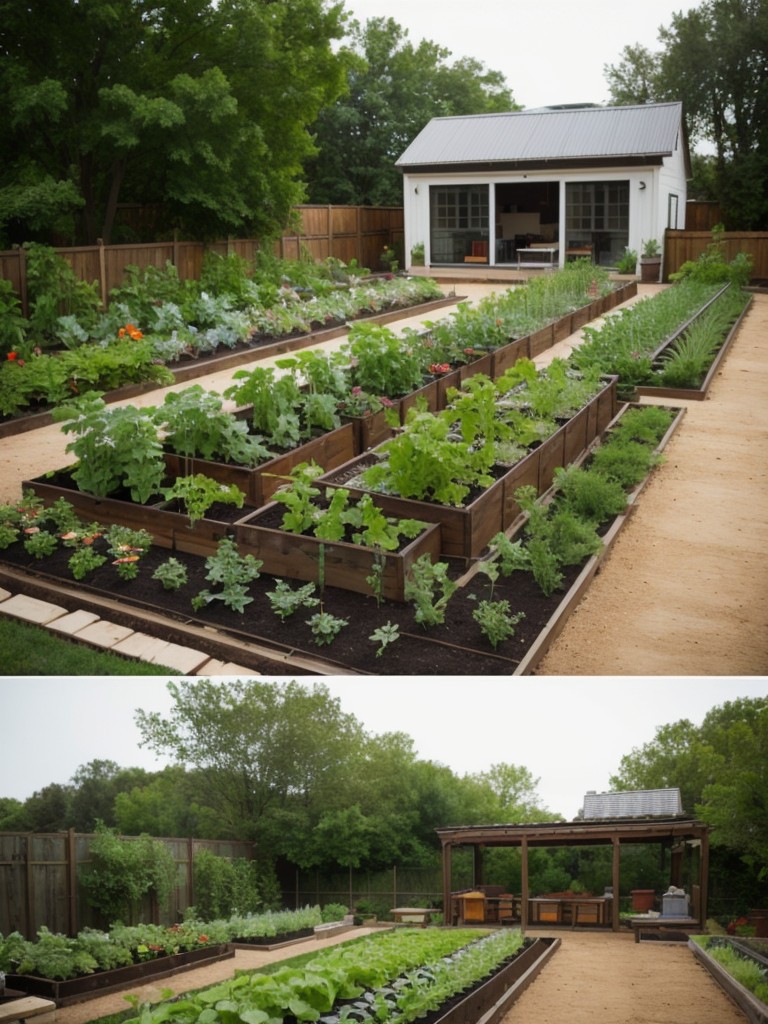
Planting a vegetable garden is an excellent way to take control of your food supply and promote sustainability. By growing your own vegetables, you can reduce your carbon footprint by eliminating the need for transportation and packaging, ultimately minimizing food miles. Furthermore, cultivating your garden allows you to have control over the quality and freshness of your produce.
Imagine plucking a ripe, juicy tomato straight from the vine or harvesting a bundle of crispy lettuce leaves. Not only will you enjoy the satisfaction of nurturing and harvesting your food, but you will also reap the health benefits of consuming fresh, organic produce. So why wait?
Start planting your vegetable garden today and experience the joy of sustainable living.
Creating a Wildlife Haven: Feeders, Houses, and Native Plants!
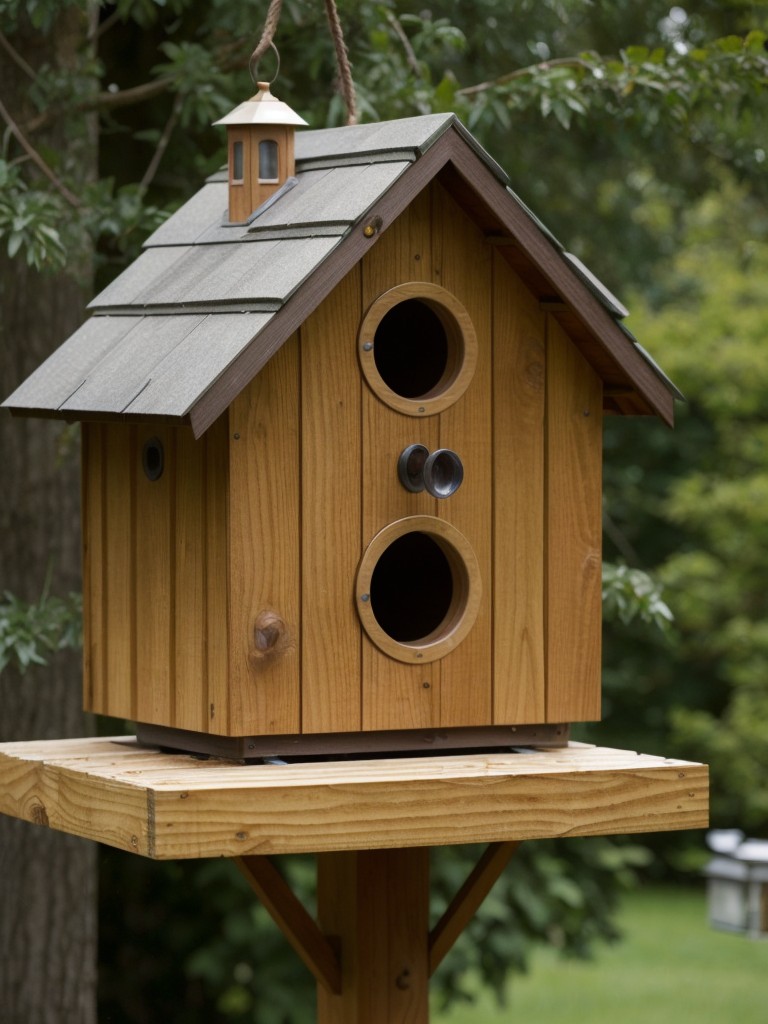
Creating a wildlife-friendly habitat entails incorporating various elements that attract and support the diverse range of species found in the surrounding environment. One effective approach is to install bird feeders and birdhouses, providing a reliable source of nourishment and safe nesting sites for avian visitors.
In addition, incorporating an array of native plants in the habitat can further enhance its appeal to wildlife. Native plants provide food and shelter for birds, insects, and other animals, creating a harmonious and sustainable ecosystem.
By combining these elements, individuals can actively contribute to the preservation of biodiversity while enjoying the beauty and serenity of a thriving wildlife habitat.





